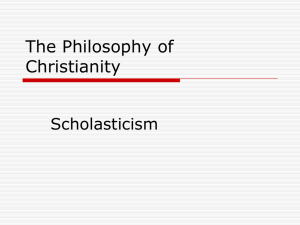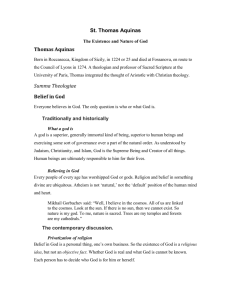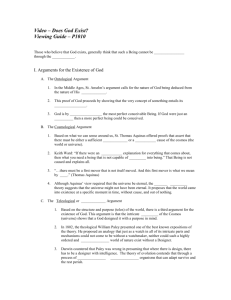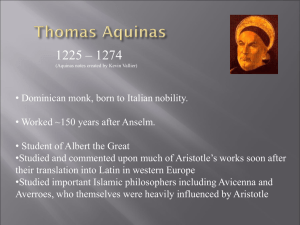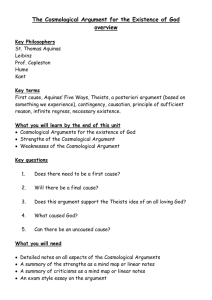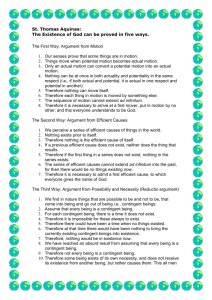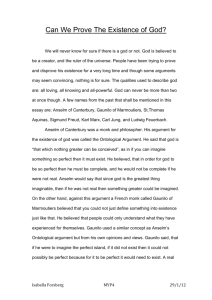Word - Saint Mary`s Press
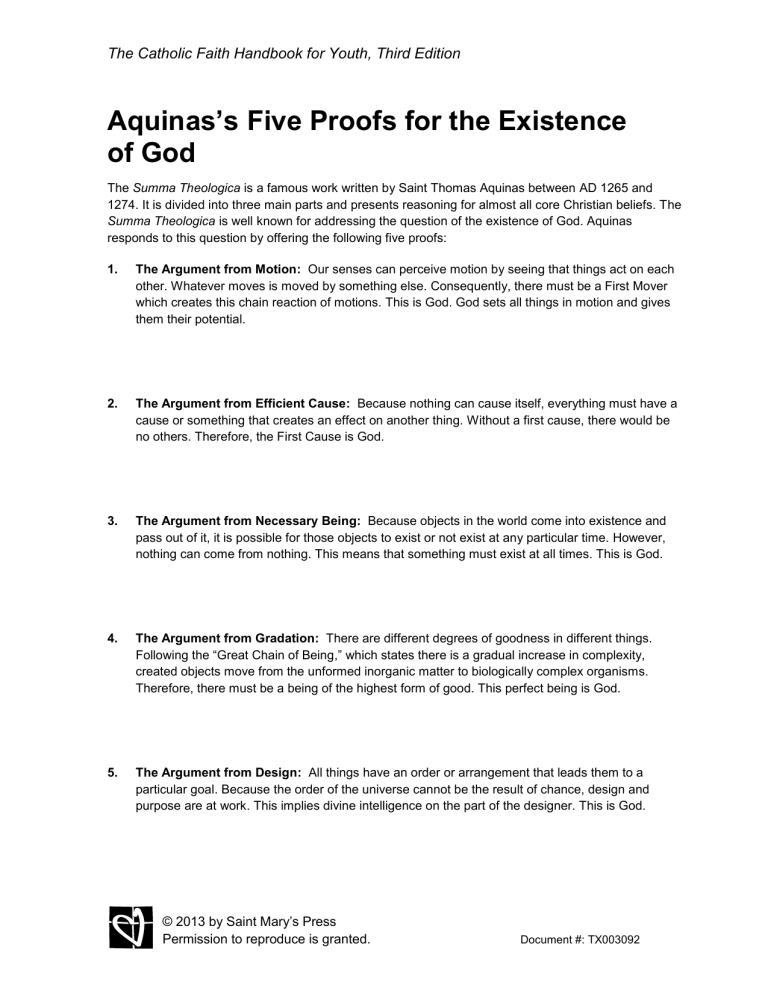
The Catholic Faith Handbook for Youth, Third Edition
Aquinas’s Five Proofs for the Existence of God
The Summa Theologica is a famous work written by Saint Thomas Aquinas between AD 1265 and
1274. It is divided into three main parts and presents reasoning for almost all core Christian beliefs. The
Summa Theologica is well known for addressing the question of the existence of God. Aquinas responds to this question by offering the following five proofs:
1. The Argument from Motion: Our senses can perceive motion by seeing that things act on each other. Whatever moves is moved by something else. Consequently, there must be a First Mover which creates this chain reaction of motions. This is God. God sets all things in motion and gives them their potential.
2. The Argument from Efficient Cause: Because nothing can cause itself, everything must have a cause or something that creates an effect on another thing. Without a first cause, there would be no others. Therefore, the First Cause is God.
3. The Argument from Necessary Being: Because objects in the world come into existence and pass out of it, it is possible for those objects to exist or not exist at any particular time. However, nothing can come from nothing. This means that something must exist at all times. This is God.
4. The Argument from Gradation: There are different degrees of goodness in different things.
Following the “Great Chain of Being,” which states there is a gradual increase in complexity, created objects move from the unformed inorganic matter to biologically complex organisms.
Therefore, there must be a being of the highest form of good. This perfect being is God.
5. The Argument from Design: All things have an order or arrangement that leads them to a particular goal. Because the order of the universe cannot be the result of chance, design and purpose are at work. This implies divine intelligence on the part of the designer. This is God.
© 2013 by Saint Mary’s Press
Permission to reproduce is granted. Document #: TX003092

